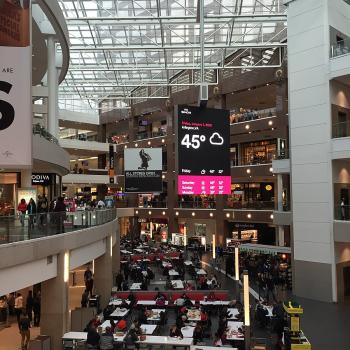from 2014, but well worth your time now:
…For people like Loftus, it’s not coffee shops or home values drawing them to places like Sandtown. It’s Jesus. Shortly after Loftus started medical school in Baltimore in 2007, he began worshipping at New Song Community Church, a racially diverse congregation in Sandtown. New Song is part of the same Presbyterian denomination as the church Loftus and his 14 siblings attended as children in Harford County, Maryland, 40 minutes outside the city.
New Song is also a member of the Christian Community Development Association. The CCDA’s model is similar to asset-based community development, which tries to build out from a community’s strengths rather than fix its deficiencies. But the CCDA asks more of its practitioners across the nation: that they have something personally at stake in the development. Leaders at New Song talked to Loftus about the core of the CCDA’s philosophy, the three R’s — relocation, redistribution and reconciliation.
The CCDA model emerged largely from the work of John Perkins, a black 84-year-old civil-rights activist from rural Mississippi. Evangelism is at the heart of Perkins’ model. But what separates his approach is his insistence that outsiders who want to help a neighborhood actually move in. The idea is rooted in incarnational ministry, the idea that God became flesh and shared in human suffering. Jesus, CCDA supporters like to say, did not commute back and forth from heaven. …
Bennett and Patty Prasada-Rao, a relocator from suburban Silver Spring, Maryland, who lived and worked in Sandtown until last year and has also served as a CCDA operations director in Chicago, have walked many relocators through the ABCs of living in the area. Neighbors, they explain, can be welcoming but suspicious. They may not be as quick as a relocator to call the police. Bennett tells relocators that if they see a young black man in handcuffs, they should not “approach a neighbor saying, ‘What did he do?’ So he’s guilty because he’s a young black teen, automatically? Say, ‘Is everything all right?’ ”
Prasada-Rao gave her cellphone number to new relocators, saying that if they sense a conflict coming on or even observe a conflict and don’t know whether to intervene, they should to call her or Bennett first unless someone’s life is in danger. Bennett says he gets calls “all the time” from relocators adjusting to the neighborhood, and some have put themselves in dangerous situations. “There’s an old term, ‘Trust God, but tie up your camel,’” says Bennett. “He’s the greatest protector, but he also calls us to be wise.”











